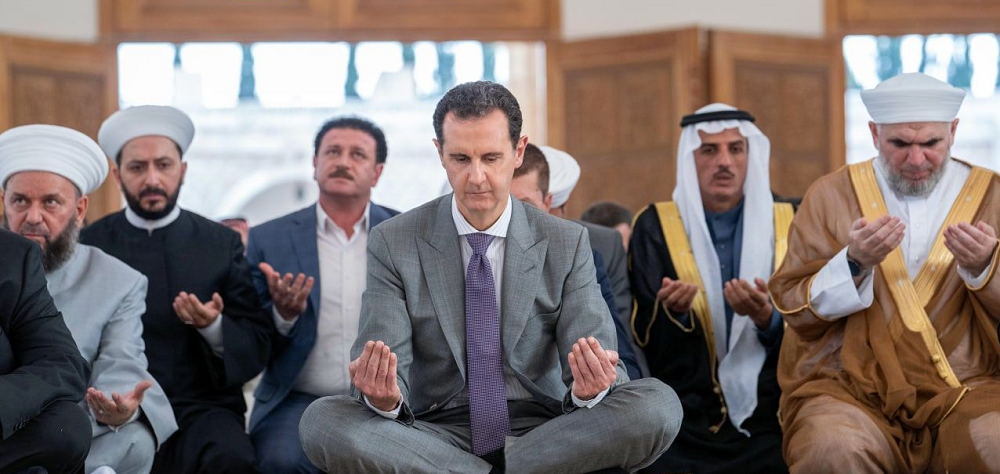Alwaght- Syrian President Bashar al-Assad attended Eid Al-Adha prayers on Sunday in Aleppo city northwest of the country. Assad visited the city to inaugurate a new phase in Aleppo power plant, receiving warm and massive welcome from the citizens there. The visit is the first since the city was recaptured from foreign-backed terrorist groups in 2016. Although the presence in Aleppo was also for a religious ceremony, it carried important messages for home and abroad.
Aleppo was the main stronghold of terrorists and the launching pad for the 2011 conflict. The city now enjoys bliss of full security though once was a setting for fierce battles for its liberation by the Syrian forces and their allies in a regional coalition called Axis of Resistance.
Since the onset of war, militants developed plans to take the city from the government to advance an agenda designed outside the Syrian borders by the US and neighboring Israeli regime. These plots went nowhere despite billions of dollars of spending, however, and the city is now held tightly by the central government. If a precise signal Assad's visit can send it is end of war and transition to peace from a 11-year devastating conflict ignited by terrorists and their foreign patrons.
Another issue is that pre-war Aleppo was Syria's economic powerhouse, accounting for 20 percent of the size of the national economy. This strategic city is now held by the central government and dominance over it can, to a large extent, determine the result of future war against the occupation forces. With its heavy weight in national economy, Aleppo can vitally help the Syrian government beat the economic problems.
Moreover, Assad's presence in Aleppo is a show-off of his government's power and legitimacy. Over the past years, Western and Arab countries have claimed that the Syrian leader had no legitimacy among the people, especially among the residents of the liberated cities. But the popular reception of Assad proved them wrong and showed how unsuccessful they were in efforts to oust him from power.
Given the fact that Aleppo residents suffered substantially during the years of war and in some periods the tribes of the province separated their ways from the central government, with his powerful presence in Aleppo, Assad seeks to restore national unity that was relatively damaged with divisive policies of the West and Israeli regime and set the context for improved relationship between the city and central government.
Also, his visit to the former stronghold of terrorists carried a message: Terrorists no longer have a place in Syria, and as the government seized from them their first base, it is a matter of time for Damascus to liberate their last stronghold Idlib and cleanse the country of them forever.
In past few weeks, terrorists launched sporadic operations against security forces in muscle-flexing moves. However, Damascus forces were vigilant and foiled a plot for terrorists to repeat their crimes in the north.
Assad's visit to Aleppo, which makes the center of gravity of Turkish campaign, is also a warning to Turkey which said it would start a new military operation in northern Syria soon. The message told Ankara that in case of a new adventure, Syria and its allies would not sit on their hands and resolutely respond to occupation forces. Through contacts with Iran, Turkey has been working to persuade the Syrian army to stay away from Turkish campaign. But Damascus more than once warned that Ankara incursion would be a "play with fire" and promised severe response.
Despite the Israeli-Arab-Western triangle's aspirations to topple Assad, he still leads a country that seems to have emerged stronger from a 11-year crisis and, assisted by allies, he managed to foil all foreign conspiracies and is ready to stand in the face of excesses of Ankara and takfiri groups.



























